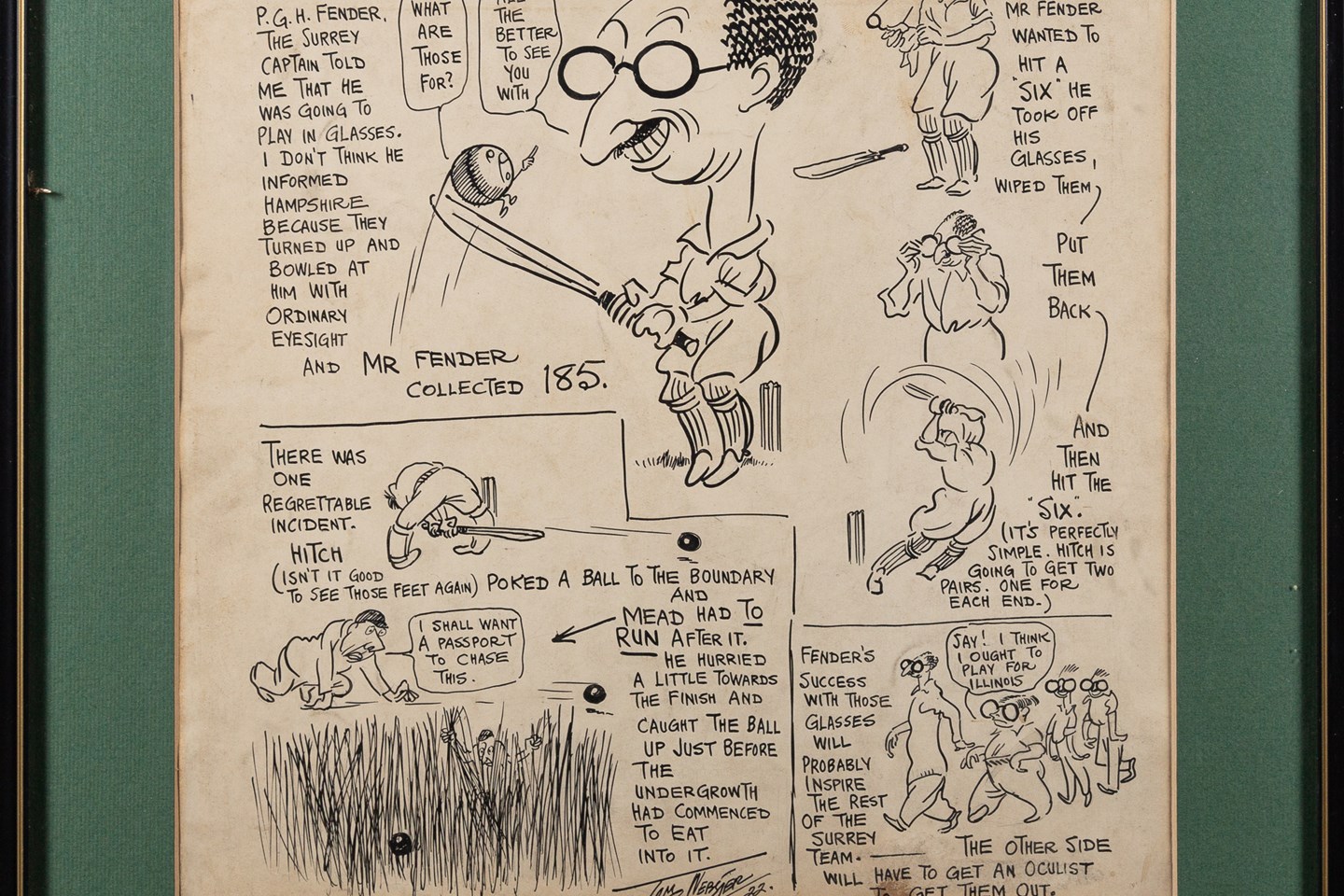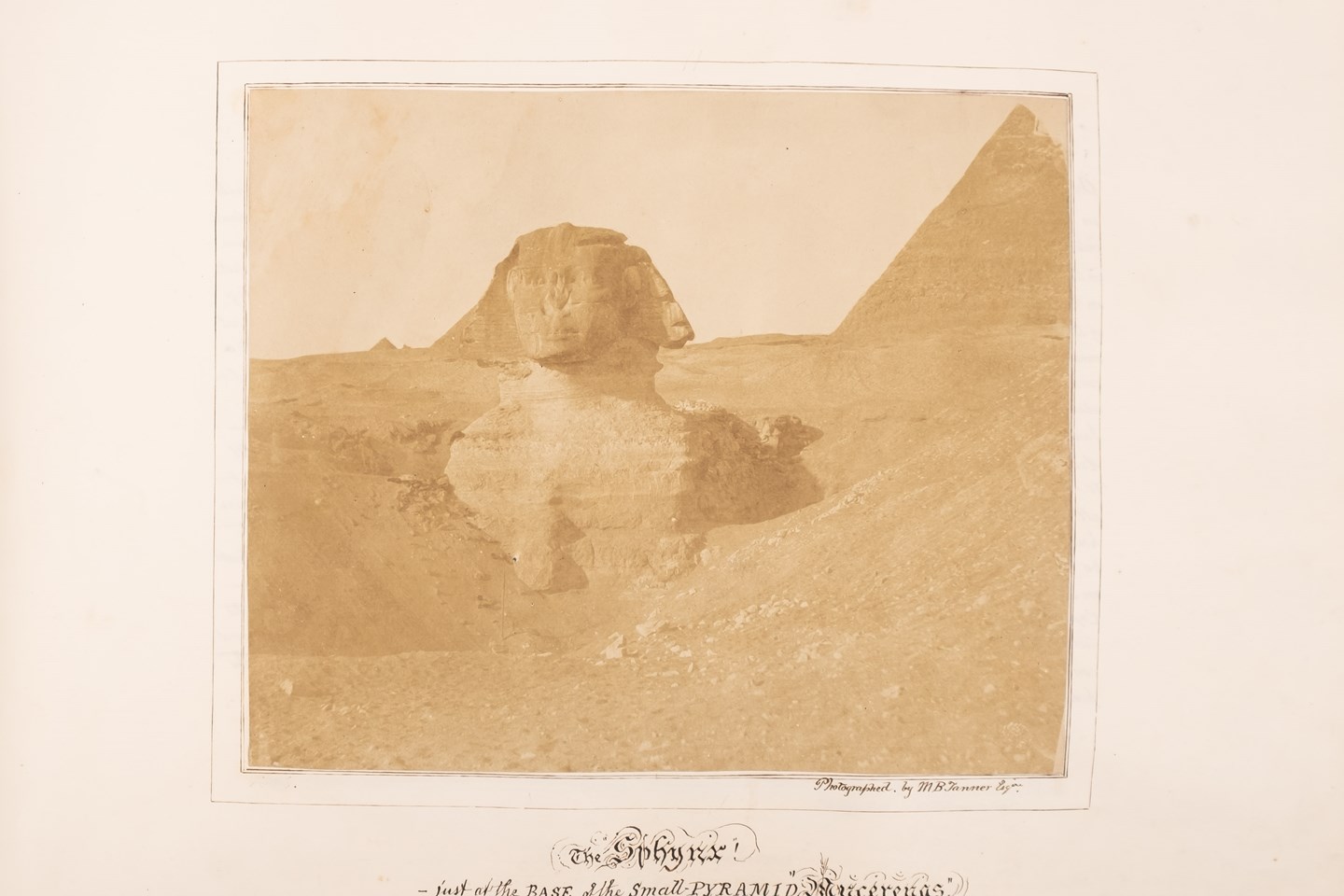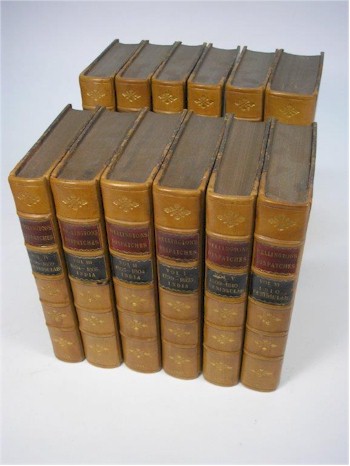
The Dispatches of Field Marshal the Duke of Wellington by Lt Col John Gurwood (BK13/132) offered in our Books, Maps and Prints Sale starting on 11th March 2015 at our salerooms in Exeter, Devon.
If a particular event or subject or person of historical importance holds a fascination for you, it is rewarding to expand you knowledge and build your understanding of your subject. Some people or subject areas attract so much interest that there is almost unlimited reading matter available to satiate even the keenest thirst for related knowledge.
One such subject is the Battle of Waterloo. In this, the 200th anniversary of that conflict, interest has never been more keen and the amount of work written about it, including by those who were there, ensures there is no shortage of interesting material.

An engraving by Lumb Stocks of The Duke of Wellington and Blucher meeting at La Belle Alliance (BK13/371), which is being offered in our next book auction in Exeter, which will be supported by live bidding online.
Colonel John Gurwood was born in 1790, originally working for a merchant he later joined the army and served under Wellington for many years. He was badly wounded several times, including an incident at the start of the Battle of Waterloo which meant he missed the chief part of the action, much to his chagrin. He became Wellington's Private Secretary and under this guise edited the publication of his Dispatches, which he worked on until his death. His bravery at an early battle in his career was publicly questioned by William Napier and this, together with failing health, seem to have broken him and he cut his own throat on Christmas Day 1845.
On the opposing side was Louis Bourrienne: He was close friend and confidant of Napoleon from childhood, but became somewhat too keen on advancing his own interests and fell into disgrace. In later years, Napoleon refused all contact with him, but despite this he published his memoirs of their time as cohorts, which gives an insight into the non-military aspects of Napoleon's life.
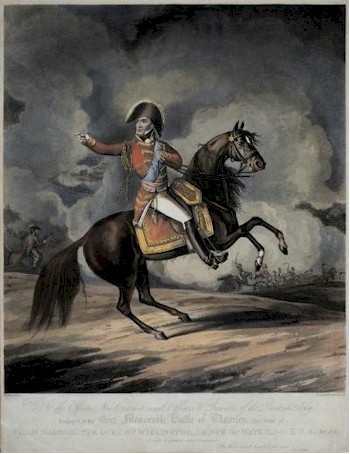
A print of The Duke of Wellington in a typically heroic pose published by S&J Fuller (BK13/359).
The early 19th century was a great time for the production of prints, and Waterloo provided many evocative images which would sell well to a public who were fascinated by the heroics of those people involved and proud of their country's splendid victory.
So one not only has scenes selected from the day of battle itself, such as Blucher and Wellington's meeting towards the end of day at the inn at La Belle Alliance, but also images of Wellington in heroic poses having triumphed. Even more general images of battle, showing the wounded if not perhaps the full horror of war had a market and still do.
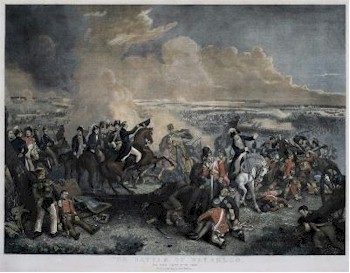
A hand-coloured engraving of The Battle of Waterloo on 18th June 1815 by JA Atkindon (BK13/359) showing some of the horrors of war.
- Bearnes Hampton & Littlewood
- Antiquarian Book Auctions
- Battle of Waterloo







